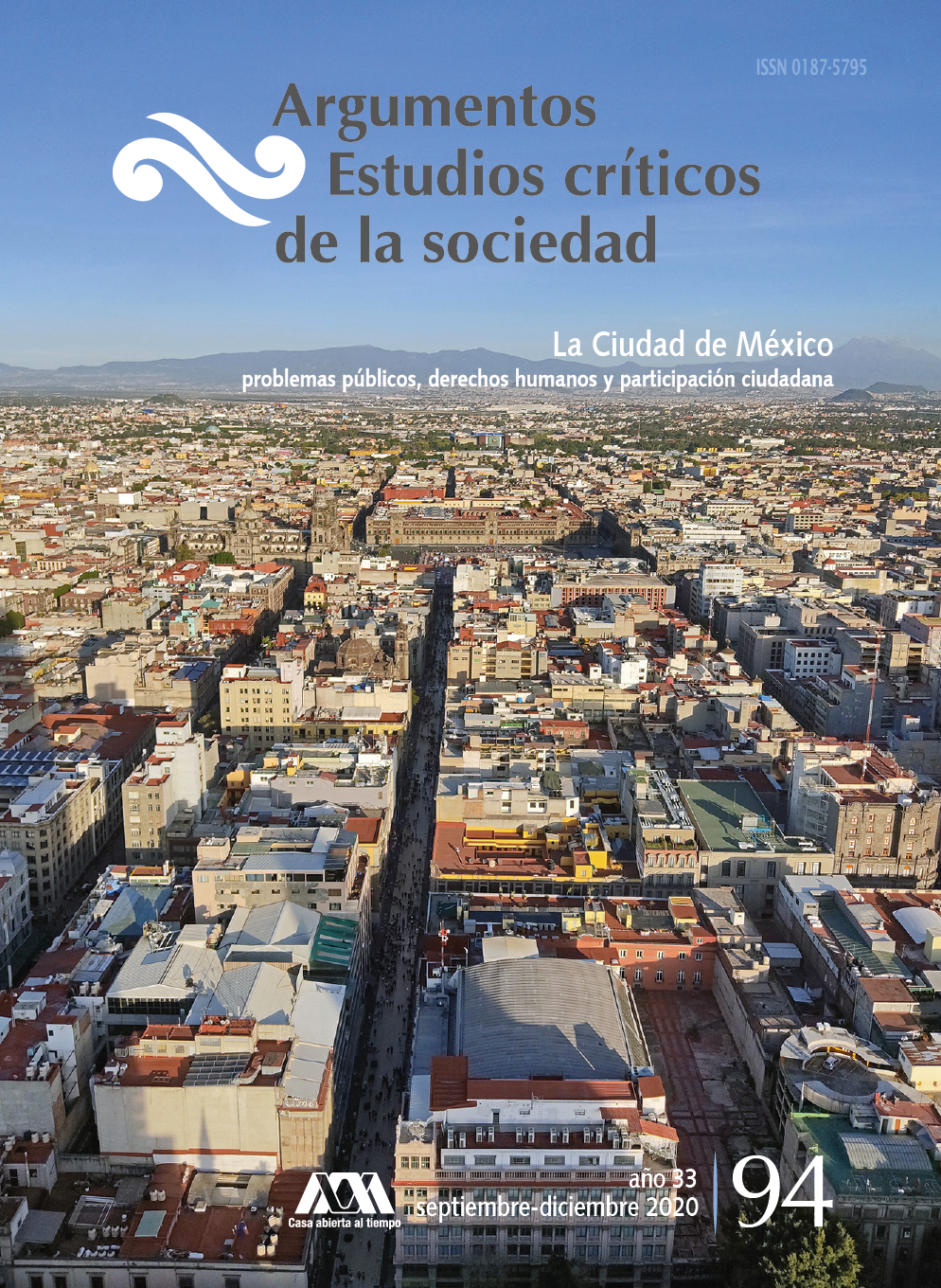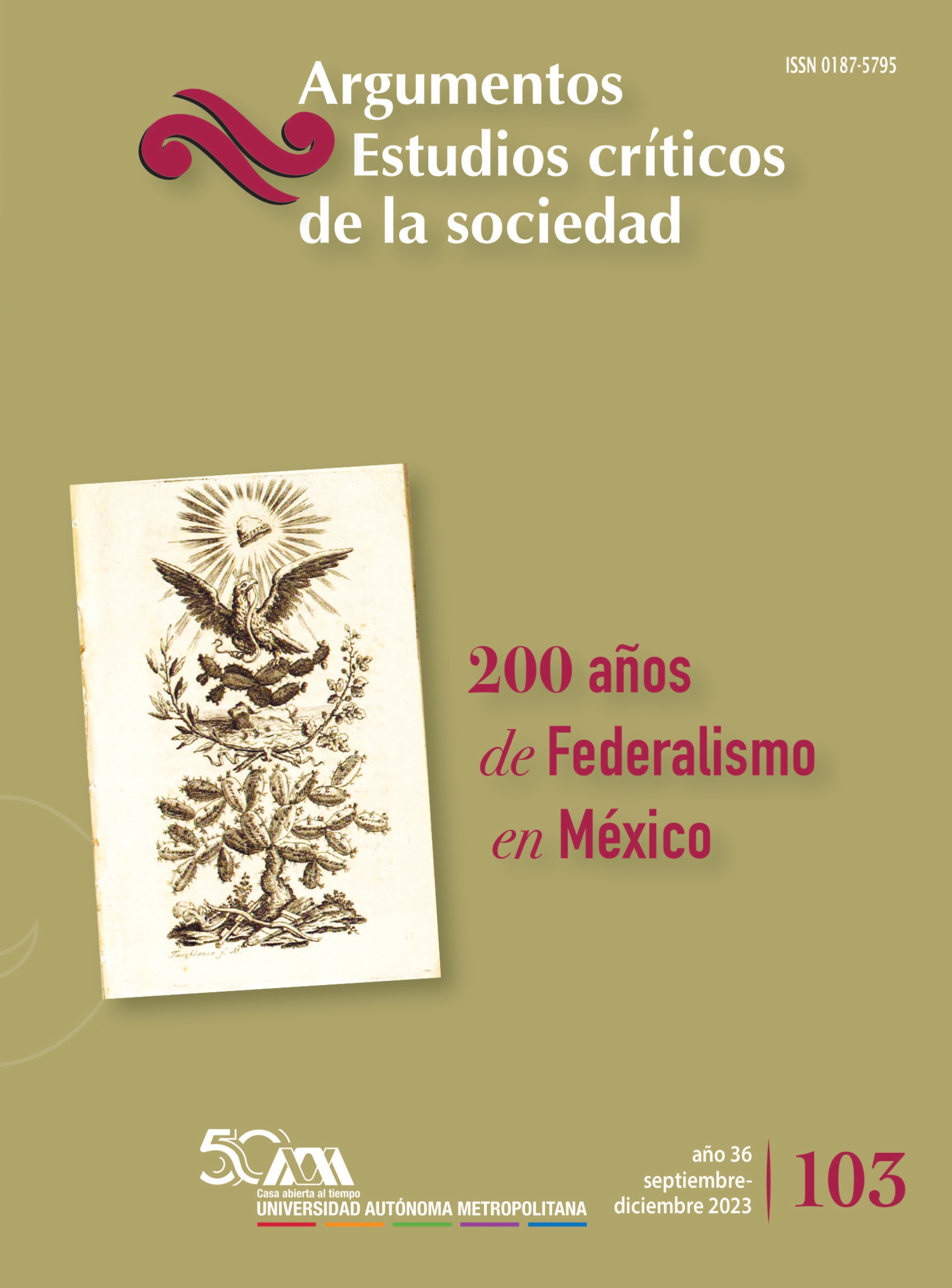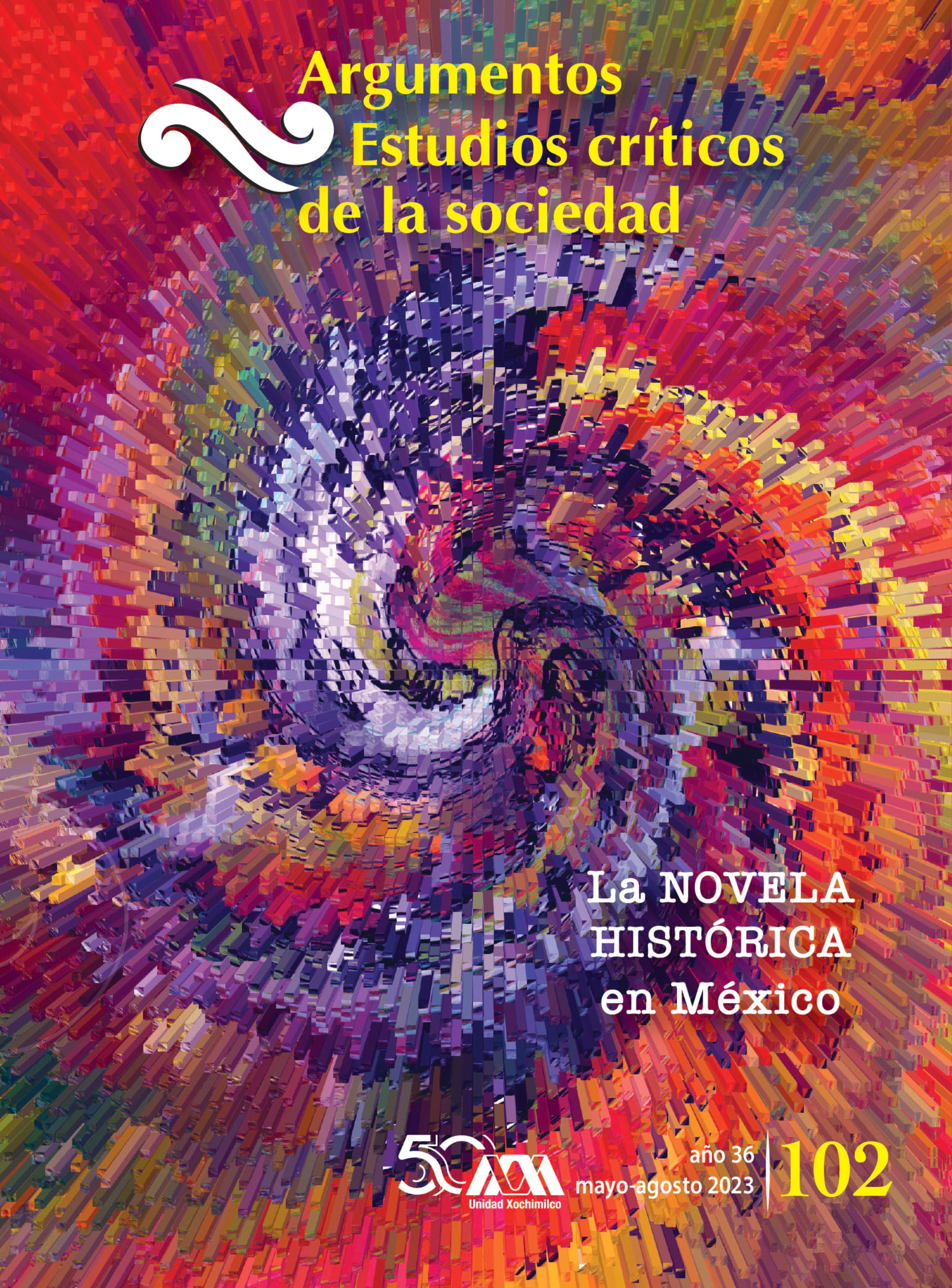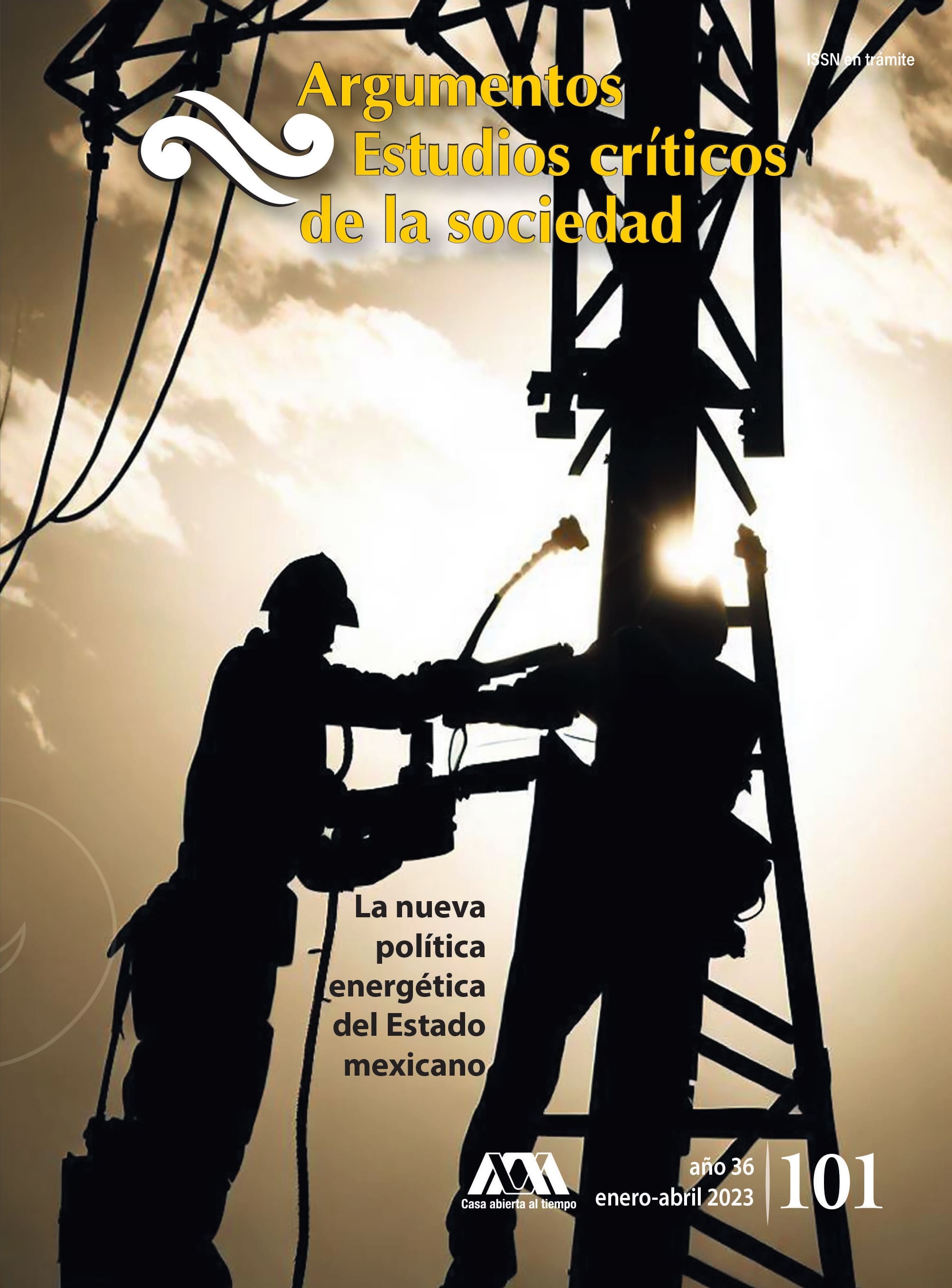The crisis of traditional party systems and the rise of populism in the European Union
The difficult political balance between national sovereignty and supranational neoliberalism
DOI:
https://doi.org/10.24275/uamxoc-dcsh/argumentos/202094-12Keywords:
neoliberal globalization, european integration, cleavage, populism, winners/loosers, euro-skeptics/pro-EUAbstract
The integration of the European Union, framed by the neoliberal globalization, has led to the emergence of a new axis of social conflict that has modified the national political spaces of its member states. The project of transforming the European Union into a supranational political structure and a unified neoliberal market transformed the social foundations on which national party systems traditionally rested. In that context, the divergences between the proposals of party elites and the expectations and perceptions of ordinary citizens widened and the representativity of traditional parties weakened. The social and attitudinal changes, and the unwise responses of the traditional parties were expressed in an electoral dealignment and created a new political space that populist parties, from right or left, began to occupy.
References
Andersen, Robert y Jocelyn Evans (2005). “Identifying Europe? The Role and Dynamics of an European Cleavage”, Revue Politique Européenne, vol. 2, núm. 16, pp. 53-79.
Bartolini, Stefano (2011). Political parties, ideology and populism in the post-crisis Europe, Conferencia de Poros [http://europeanseminars.eliamep.gr/wp-content/uploads/2011/07/Stefano-Bartolini-Paper.pdf] .
—— (2006). “A Comparative Political Approach to the EU Formation”, Working Paper 04, Arena, Centre for European Studies, University of Oslo [http://www.arena.uio.no] .
—— (2005). “La formation des clivages”,Revue Internationale de Politique Comparée, vol. 12, núm. 1, pp. 9-34.
—— (2001), “La Structure des Clivages Nationaux et la Question de l’Intégration dans l’Union Européenne”, Politique Européenne, 2002/3, núm. 4, pp. 15-45.
Berman, Sheri y Maria Snegovaya (2019). “Populism and the Decline of Social Democracy”, Journal of Democracy, vol. 30, núm. 3, pp. 5-19.
Bornschier, Simon (2009). “Cleavage Politics in Old and New Democracies”, Living Reviews in Democracy, vol. 1, Center for Comparative and International Studies, University of Zurich, pp. 1-13.
—— (2008). “The extreme Right populist challenges and the transformation of political space in western Europe”, ponencia presentada en el Taller sobre Populismo del National Centre of Competence in Research, Aarau, Suiza.
—— (2010). Cleavage Politics and the Populist Right. The New Cultural Conflict in Western Europe, Philadelphia: Temple University Press.
Campbell, Angus et al. (1960). The American voter. Nueva York: Wiley.Collier, Ruth y David Collier (1991). Shaping the Political Arena. Critical Junctures, the Labor Movement, and Regime Dynamics in Latin America. Princeton: Princeton University Press.
Dalton, Russell, Scott Flanagan y Paul Beck (eds.) (1984). Electoral Change in Advanced Industrial Democracies. Realignment or Dealignment? Princeton: Princeton University Press.
Devli, Kat y Mara Mordecai (2019). Supporters of European populist parties stand out on key issues, from EU to Putin. Washington: Pew Research Center.
De la Torre, C. (2010). Populist Seduction in Latin America. Ohio University Press, Athens (OH).
Farole, Thomas, Soraya Goga y Marcel Ionescu (2018). Rethinking Lagging Regions, World Bank Report on the European Union.
Germani, Gino (1975), Autoritarismo, fascismo e classi sociali, Bolonia: Il Mulino.
Germani, Gino, Torcuato di Tella, Octavio Ianni (1973). Populismo y contradicciones de clase en latinoamerica. México: Ediciones Era.
Gramlich, John y Katie Simmons (2018). 5 Takeaways abous poulism and the political landscape in Western Europe. Washington: Pew Research Center.
Grande, Edgar Kriesi et al. (2008). “Globalizing West European politics: the change of cleavage structures, parties and party systems in comparative perspective”, en Western European Politics in the Age of Globalization. Cambridge: Cambridge University Press, pp. 320-344.
Grande, Edgar y Swen Hutter (2016). “European Integration and the challenge of politisation”, en Swen Hutter, Edgar Grande y Hanspeter Kriesi (eds.), Politicising Europe. Integration and Mass Politics, Cambridge, Reino Unido: Cambridge University Press, pp. 3-31.
Guilluy, Christophe (2013). Fractures Françaises. París: Flammarion.
—— (2015). La France Périphérique, París: Flammarion.
Inglehart, Ronald y Pippa Norris (2016). Trump, Brexit, and the Rise of Populism: Economic Have-Nots and Cultural Backlash. Harvard Kennedy School Working Paper, No. RWP16-026.
Katz, Richard y Peter Mair (1995). “Changing Models of Party Organization and Party Democracy. The Emergence of the Cartel Party”, Party Politics, vol.1, núm. 1, Londres: Sage Publications, pp. 5-28.
—— (2018). Democracy and the cartelization of political parties, Oxford: Oxford University Press.
Key, Valdimer (1955). “A Theory of Critical Elections”, The Journal of Politics, vol. 17, núm. 1, pp. 13-18.
Kitschelt, Hebert (1994). The Transformation of European Social-Democracy. Cambridge, Reino Unido: Cambridge University Press.
Kriesi, Hanspeter, Edgar Grande, Romain Lachat, Martin Dolezal, Simon Bornschier y Timotheos Frey (2006). “Globalization and the transformation of the national political space: six European countries compared”, European Journal of Political Research, vol.45, núm.6, pp. 921-956.
Kriesi, Hanspeter (2008). “Contexts of Party Mobilization”, en Kriesi et al., Western European Politics in the Age of Globalization. Cambridge: Cambridge University Press, pp. 23-52.
Kriesi, Hanspeter et al. (2008b). “Globalization and its impact on national spaces of compe-tition”, en Kriesi et al., Western European Politics in the Age of Globalization. Cambridge: Cambridge University Press, pp. 3-22.
Kriesi, Hanspeter y Edgar Grande (2016). “The euro crisis: a boost to the politicisation of European integration”, en Swen Hutter, Edgar Grande y Hanspeter Kriesi (eds.), Politicising Europe. Integration and Mass Politics. Cambridge, Reino Unido: Cambridge University Press, pp. 240-275.
Krugman, Paul (1991). “Increasing Returns and Economic Geography”, Journal of Political Economy, vol. 99, núm. 3, pp. 483-499.
Laclau, Ernesto (2005). La razón populista. México: Fondo de Cultura Económica.
Lipset, Seymour y Stein Rokkan (1967). “Cleavage Structures, Party Systems, and Voter Alignments: An Introduction”, en Lipset y Rokkan, Party Systems and Voter Alignments. Nueva York: The Free Press, pp. 1-64.
Lobera, Josep (2015). “De movimientos a partidos. La cristalización electoral de la protesta”, Revista Española de Sociología, núm. 24, pp. 97-105.
Lobera, Josep y Jesús Rogero García (2017). “Medición de la cristalización electoral de un movimiento de protesta: de la indignación al voto”, Empiria. Revista de Metodología de las Ciencias Sociales, núm. 38, España: UNED, pp. 151-176.
OECD (2018). Regions and Cities at a Glance. París.
Ostry, Jonathan, Prakash Loungani y Davide Furceri (2016). “Neoliberalism: Oversold?”, Finance & Development, vol. 53, núm. 2, pp. 38-41.
Polk, Jonathan et al. (2017), “Explaining the salience of anti-elitism and reducing political corruption for political parties in Europe with the 2014 Chapel Hill Expert Survey data”, Research & Politics, enero-marzo, pp. 1-9.
Rodríguez-Pose, Andrés (2018). “The revenge of the places that don ́t matter (and what to do about it)”, Cambridge Journal of Regions, Economy and Society, núm. 11, pp. 189-209.
Rodríguez-Pose, Andrés (2019). The revenge of places that don ́t matter and the geography of EUdiscontent, ESPON Seminar, Viena: Comisión Europea y London School of Economics and Political Science.
Savarino, Franco (2006). “Populismo: perspectivas europeas y latinoamericanas”, Espiral (Guadalajara), vol. XIII, núm. 37, pp. 77-94.
Simmons, Katie et al. (2018). In Western Europe, Populist Parties Tap Anti-Establishment Frustration but Have Little Appeal Across Ideological Divide, Washington: Pew Research Center.
Stokes, Bruce (2015). 5 Key findings about how Europeans view the economy and EU, Washington: Pew Research Center.
—— (2018). Populists views in Europe: It’s not just the economy, Washington: Pew Research Center.
Varoufakis, Yannis (2017). Adults in The Room: My Battle With Europe’s Deep Establishment. Nueva York: Farrar, Straus y Giroux.
Wike, Richard y Janell Fetterolf (2018). “Liberal Democracy’s Crisis of Confidence”, Journal of Democracy, vol. 29, núm. 4, pp. 136-150.
Wike, Richard, Laura Silver y Alejandra Castillo (2019). Many Across the Globe Are Dissatisfied with How Democracy Is Working, Washington: Pew Research Center.
Wike, Richard, Bruce Stokes, Katie Simmons (2016). Europeans Fear Wave of Refugees Will Mean More Terrorism, Fewer Jobs. Sharp ideological divides across EU on views about minorities, diversity and national identity, Washington: Pew Research Center.
Wike, Richard, Janell Fetterolf y Moira Fagan (2019). Europeans Credit EU with Promoting Peace and Prosperity, but Say Brussels Is Out of Touch with Its Citizens, Washington: Pew Research Center.








